 White blood cells help the immune system protect the body from infections and diseases. Along with attacking infections, white blood cells also have the ability to bring other cells together to help in the fight. With these known abilities of white blood cells, life science researchers have been researching ways to amplify the abilities of these cells to target specific illnesses, such as tumors.
White blood cells help the immune system protect the body from infections and diseases. Along with attacking infections, white blood cells also have the ability to bring other cells together to help in the fight. With these known abilities of white blood cells, life science researchers have been researching ways to amplify the abilities of these cells to target specific illnesses, such as tumors.
Tags: CA, University of California Davis Medical Center, University of California Davis, Cancer Treatment, Immune System, UCDMC, Sacramento, NIH funding, 2018
 Tuberculosis (TB) is an infectious disease that affects nearly 1/3 of the world's population. Although eradication efforts have been undertaken, none have been successful and TB is still a leading cause around the world. Even though there are treatment methods for this infection, they are not always successful at killing the bacteria that cause TB. This provides life science researchers with more questions and research topics, to better understand the infection and bacteria and what causes treatments to work occasionally, but not always
Tuberculosis (TB) is an infectious disease that affects nearly 1/3 of the world's population. Although eradication efforts have been undertaken, none have been successful and TB is still a leading cause around the world. Even though there are treatment methods for this infection, they are not always successful at killing the bacteria that cause TB. This provides life science researchers with more questions and research topics, to better understand the infection and bacteria and what causes treatments to work occasionally, but not always
Tags: tuberculosis, University of Massachusetts Amherst, new research funding, MA, NIH funding, Amherst, UMASS, 2018, TB Research
The Biotechnology Calendar, Inc. BioResearch Product Faire™ will be returning to Washington University, St. Louis for its 19th Annual event. WashU's Life Science R&D Expenditures and NIH funding has been totaling about $1 Billion the past few years proving the University's dedication to being at the forefront of life science research and providing a prime opportunity for boosting scientific sales.
Read MoreTags: Washington University St. Louis, Washington University, WashU, MO, St Louis, 2018
 The brain is a fragile organ that can be damaged by different impacts to the head, including sports injuries or car crashes. Thousands of people arediagnosed with traumatic brain injuries (TBI) each year,stemming from different head impacts. The National Institute on Disability, Independent Living, and Rehabilitation Research (NIDILRR) awards 16 US institutions a TBI Model System grant each year to provide researchers and clinicians more opportunities to study these injuries.
The brain is a fragile organ that can be damaged by different impacts to the head, including sports injuries or car crashes. Thousands of people arediagnosed with traumatic brain injuries (TBI) each year,stemming from different head impacts. The National Institute on Disability, Independent Living, and Rehabilitation Research (NIDILRR) awards 16 US institutions a TBI Model System grant each year to provide researchers and clinicians more opportunities to study these injuries.
Tags: MSSM, BioResearch Product Faire Event, NY, Mt. Sinai, Icahn School of Medicine, 2018, Traumatic Brain Injury Research, nih research funding, NIDILRR
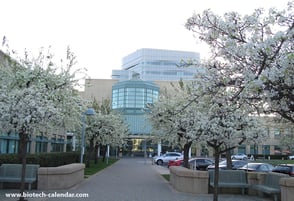 Like most forms of cancer, brain cancers are frequently treated with chemotherapy and radiation therapy. Although these treatments can be effective, many times they are not. Scientists around the world study different types of brain cancers to develop new treatment methods.
Like most forms of cancer, brain cancers are frequently treated with chemotherapy and radiation therapy. Although these treatments can be effective, many times they are not. Scientists around the world study different types of brain cancers to develop new treatment methods.
Tags: CA, University of California San Diego, cancer research, SDVS, UCSD, Biotechnology Vendor Showcase Event, 2018, Zika virus, Brain cancer
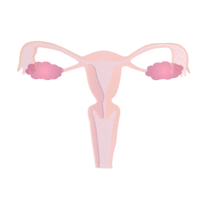 Researchers from science institutions around the world study different forms of cancer, to gain better understandings of the diseases to assist with the development of new treatment methods. One of these cancers that is continuously being studied is ovarian cancer, which effects 1 in 75 women, according to the American Cancer Society. The University of Pittsburgh plans to further enhance ovarian cancer research opportunities with the establishment of a new research center dedicated to ovarian cancer and biology research. (Image courtesy of Wikimedia Commons)
Researchers from science institutions around the world study different forms of cancer, to gain better understandings of the diseases to assist with the development of new treatment methods. One of these cancers that is continuously being studied is ovarian cancer, which effects 1 in 75 women, according to the American Cancer Society. The University of Pittsburgh plans to further enhance ovarian cancer research opportunities with the establishment of a new research center dedicated to ovarian cancer and biology research. (Image courtesy of Wikimedia Commons)
Tags: University of Pittsburgh, UPITT, BioResearch Product Faire Event, New research center, ovarian cancer, 2018, Comprehensive Ovarian Biology Research Institute
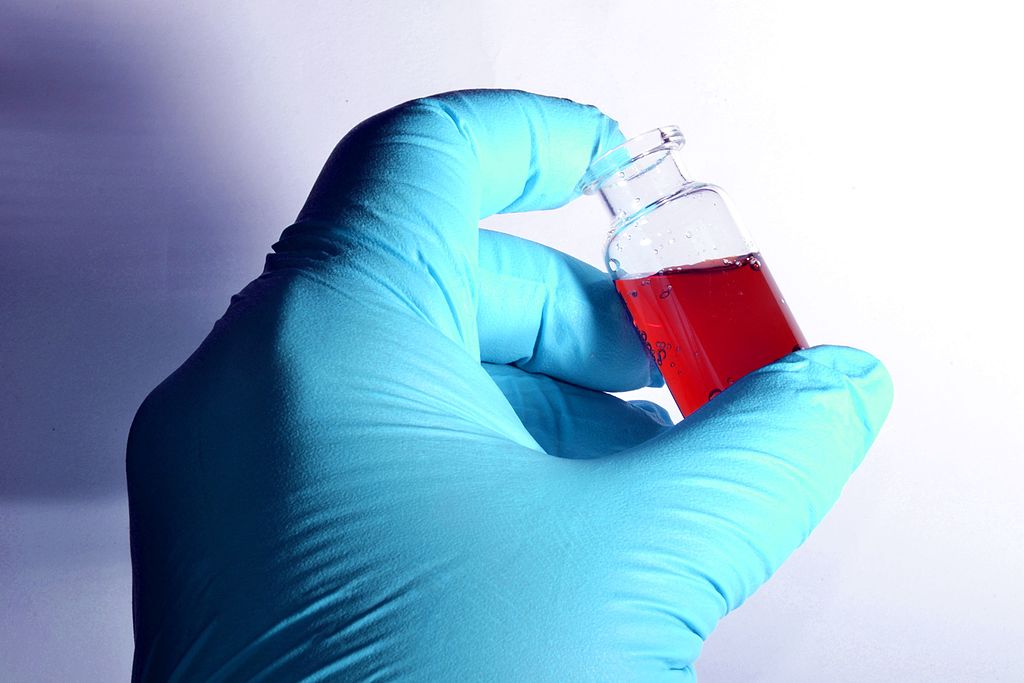 Washington University in St. Louis has 1 of 57 Institutes of Clinical and Translation Sciences (ICTS) in the United States. The ICTS at Washington University focuses on translating discoveries from both translation and clinical research into new treatments and therapies. The ICTS does not focus on just one area of life science research. Instead, researchers from all spectrums on the health sciences are able to use the institutes resources to further their work on topics like disease prevention and treatment. Training programs are also offered through the institute for researchers. (Image courtesy of P. David via Wikimedia Commons)
Washington University in St. Louis has 1 of 57 Institutes of Clinical and Translation Sciences (ICTS) in the United States. The ICTS at Washington University focuses on translating discoveries from both translation and clinical research into new treatments and therapies. The ICTS does not focus on just one area of life science research. Instead, researchers from all spectrums on the health sciences are able to use the institutes resources to further their work on topics like disease prevention and treatment. Training programs are also offered through the institute for researchers. (Image courtesy of P. David via Wikimedia Commons)
Tags: Washington University St. Louis, WashU, BioResearch Product Faire Event, MO, NIH funding, Clinical and Translational Research, 2018, clinical and translational research funding
 Researchers within the Laboratory for Research on the Structure of Matter (LRSM) at the University of Pennsylvania have been conducting breakthroughs in the field of materials science since it opened in 1961. A leading center within the LRSM that helps with this breakthrough research, the NSF Materials Research Science and Engineering Center (MRSEC), was recently awarded a $22.6 million grant from the National Science Foundation (NSF) that will support materials research at UPenn over the next six years. (Image courtesy of WestCoastivieS via Wikimedia Commons)
Researchers within the Laboratory for Research on the Structure of Matter (LRSM) at the University of Pennsylvania have been conducting breakthroughs in the field of materials science since it opened in 1961. A leading center within the LRSM that helps with this breakthrough research, the NSF Materials Research Science and Engineering Center (MRSEC), was recently awarded a $22.6 million grant from the National Science Foundation (NSF) that will support materials research at UPenn over the next six years. (Image courtesy of WestCoastivieS via Wikimedia Commons)
Tags: University of Pennsylvania, UPenn, BioResearch Product Faire Event, PA, NIH funding, NIH award, NSF funding, Materials Research, 2018, Materials Science
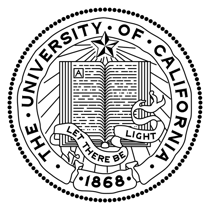 In the state of California, more than 176,000 residents arediagnosed with cancer each year and more than $14 billion is spent to fight this disease in California alone. The University of California system has five of the top cancer centers in the country within theseacademic institutions. In September these five UC cancer centers announced that they were teaming up to form a cancer consortium to provide researchers and physicians in California more opportunities to further their work on cancer-related topics. (Image courtesy of Wikimedia Commons)
In the state of California, more than 176,000 residents arediagnosed with cancer each year and more than $14 billion is spent to fight this disease in California alone. The University of California system has five of the top cancer centers in the country within theseacademic institutions. In September these five UC cancer centers announced that they were teaming up to form a cancer consortium to provide researchers and physicians in California more opportunities to further their work on cancer-related topics. (Image courtesy of Wikimedia Commons)
Tags: cancer research, University of California, LAVS, SDVS, UCDMC, SFVS, BioResearch Product Faire Event, UCI, Biotechnology Vendor Showcase Event, 2018
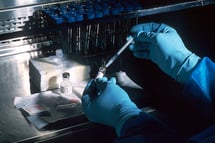
Vaccine research is a field that is constantly growing and changing, from new vaccines being created to different vaccination methods being developed. With diseases changing and new diseases emerging, researchers around the world work tirelessly to create treatments. Researchers from the College of Veterinary Medicine at the University of Georgia, Athens recently received a grant of $3.2 million from the National Institutes of Health (NIH) to continue their work developing new vaccine platforms. (Image courtesy of John Keith via Wikimedia Commons)
Read MoreTags: University of Georgia Athens, vaccine research, UGA, BioResearch Product Faire Event, NIH funding, NIH grant, 2018, SAAVE

